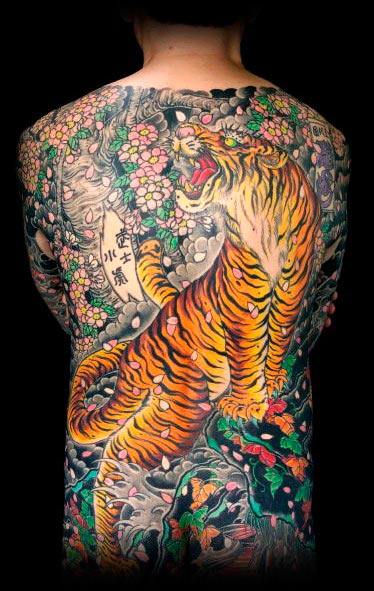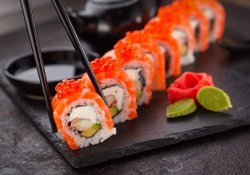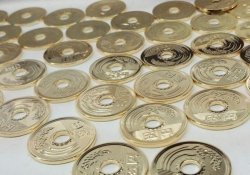Do you want to get a tattoo in Japanese but don't know how to choose the ideogram? Ever wondered what the Japanese think about tattoos? How do you spell tattoo in japanese? What are the most used ideograms in tattoos?
Did the Yakuza result in prejudice against tattoos in Japan? How does Japan view tattoos? In this article, we will answer these and other questions, in addition to seeing several curiosities involving tattoos.
Maybe you've heard that in Japan tattoos are frowned upon. Really, because of Yakuza, Japanese Mafia, there is still some fear when it comes to tattoos.
Even some gyms, water parks, onsens and public swimming pools do not allow access to people with tattoos. Is this all because of the Yakuza? Bearing in mind that this article is quite extensive and varied, we recommend using the summary below:
Índice de Conteúdo
How do you spell tattoo in japanese?
Japanese tattoo is written irezumi [入れ墨] which literally means to insert ink. It can also be pronounced and written as tattoo [タトゥー] derived from English and other Western languages. Tattooing in Japan is an art so ancient that it dates back even before Christ in the world. Jomon period.
Another alternative word rarely used to refer to tattoos is sassei [箚青]. Traditional Japanese tattoos can be called gei [黥], shisei [刺青] or bunshin [文身].
There are some Japanese words related to tattooing that I would like to share:
- Kurikaramonmon [倶利迦羅紋紋] – Tattoo of a dragon engulfed in flames and swallowing the tip of a vertical sword;
- Horu [彫る] - Sculpt; get a tattoo;
- Irebokuro [入れぼくろ] - Fake tattoo; Makeup;
- Irezumishi [刺青師] - Tattoo artist;
- peepatatoo [ペーパータトゥー] – Fake tattoo; tattoo sticker;
- This word is untranslatable. [黥面] - Facial tattoo;
- Asaku [黥く] - Tattoo a criminal around the eye;
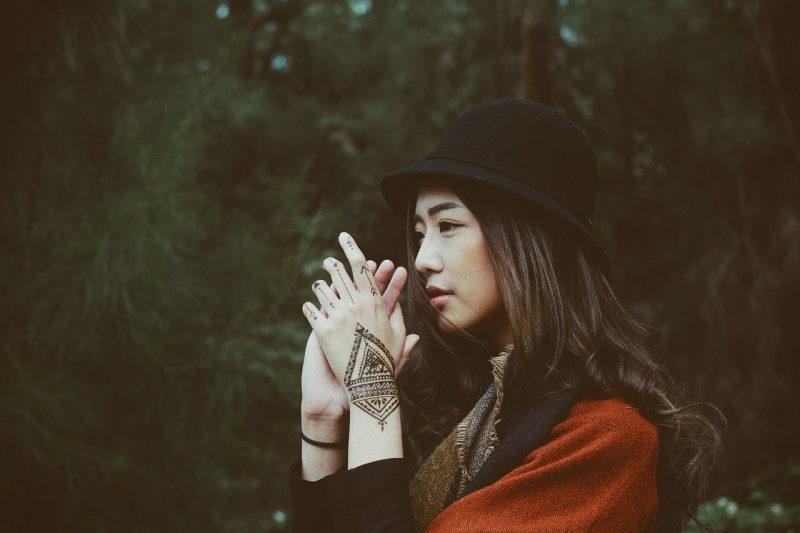
The history of tattoos in Japan
In the past, the Japanese used tattoos for spiritual expression or body decoration where they even gained a meaning of status. In the Edo Period (1603-1868), they began to be used as a punishment on prisoners to mark them for the crimes they had committed and thus aid in identification and serve as a reminder to criminals.
There is even an ancient art of tattooing called tebori, which used a very painful process by piercing the dermis (second layer of the skin) with bamboo rods and several needles at the tip. Some received a tattoo on their face called mesaku [黥]. China also used similar punishments called bokukei [墨刑].
This punishment made marks or ideograms in visible places on the body, serve as a warning to the population, resulting in a permanent exclusion from society. For some prisoners, getting a tattoo was the worst possible punishment, far worse than imprisonment or torture.
Perhaps this is one of the main reasons tattoos in Japan are looked at with bad eyes. To this day, even though no one is tattooed anymore for committing crimes, some still view tattooed people as dangerous. Probably because of the prohibition in the Meiji era.
In the Meiji Era tattoos were officially banned (1872 to 1948)
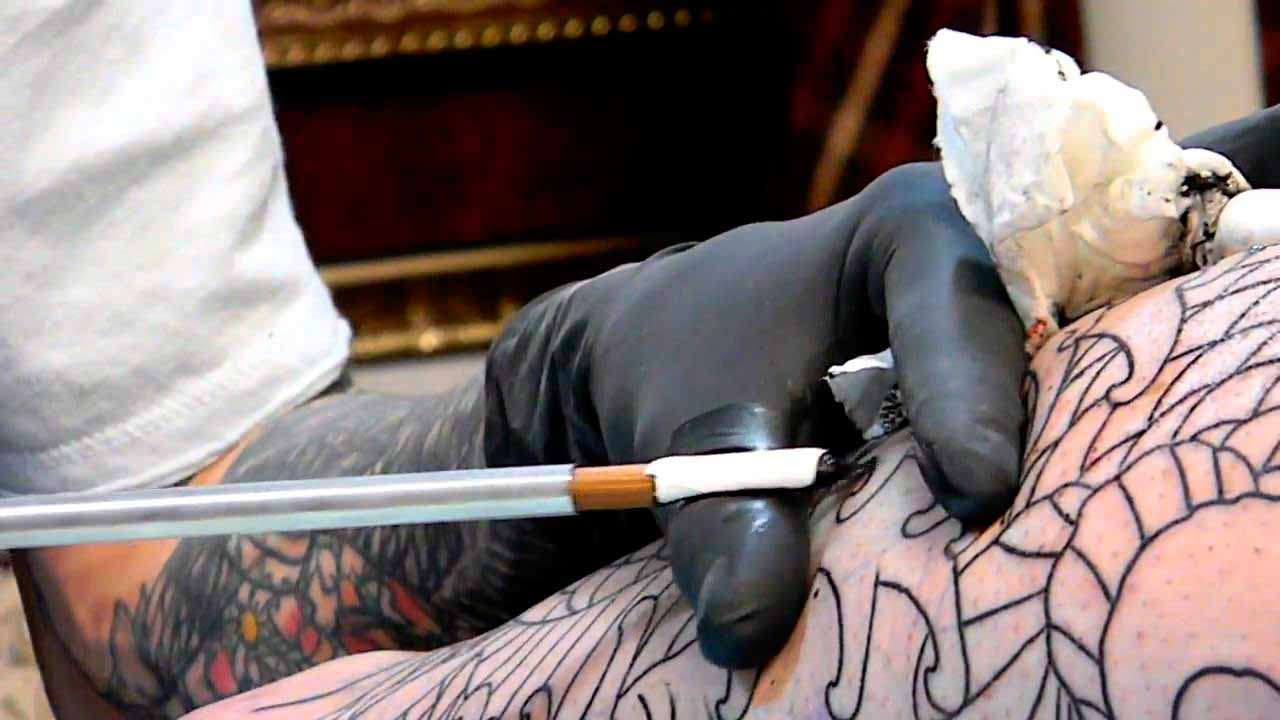
Did the Yakuza spread tattoo fear in Japan?
In the middle of the 18th century, Japan stopped associating tattoos with crimes, but the community still saw the tattooed as criminals. For this reason, the tattoo as an ornament became popular among the yakuza, so that criminals hide their markings with more beautiful images that are usually things of nature, dragons, flowers, lightning, waves and animals.
But the criminal Japanese didn't use tattoos just to cover up old markings, the Yakuza adopted the famous tattoos to show the loyalty and organization of its members, as well as strength and courage. Due to the Yakuza the Japanese again developed prejudice towards tattooing that persists to this day. Still, there are many Japanese who see these tattoos, especially from Japanese gangs, as a beautiful work of art.
The Yakuza is an organization less and less visible in the Japanese population, yet it is linked to prostitution, drugs, gambling and extortion. So much so that nowadays some Yakuza members wear suits to avoid showing off their tattoos in public. The question still remains: What do yakuza tattoos have to do with popular tattoos?
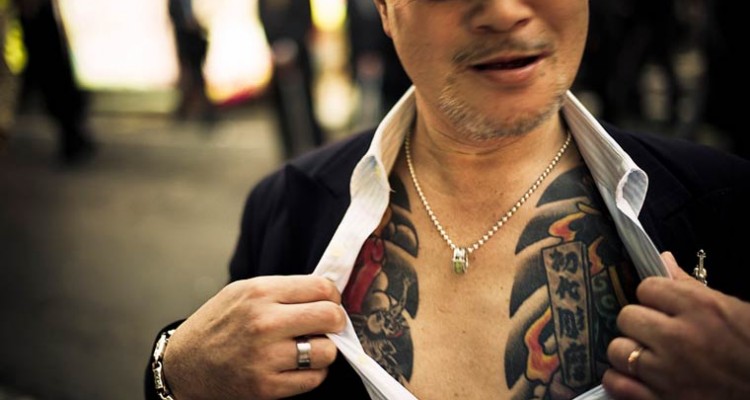
The article is still halfway through, but we recommend also reading:
Does Japan not accept any kind of tattoo?
When seeing yakuza tattoos in Japan, it is obvious to identify criminals from people who have simple tattoos on some part of the body. Still, in order to follow rules imposed by certain places, many end up facing problems or embarrassment just for having a small tattoo on their arm or body.
Even the Japanese don't see the tattoos of yakuza members as something horrible or scary, they can understand the magnitude and artistry expressed in these tattoos.
The prohibition of tattoos in the Meiji era was to avoid embarrassment with Westerners, but the effect was the opposite and many Easterners fell in love with Japanese tattoos.
Gradually, Japan is losing this stigma related to tattoos. There are already more than 3000 legal studios against less than 300 in the 90's. Nowadays the Japanese are quite open to this type of art.
Japan is made up of its vast majority of elderly and traditional people, where they possibly don't like tattoos. Even in Brazil there is this stigma, many elderly people have the same thought.
Will I suffer prejudice because of the tattoo in Japan?
If you're worried about whether or not you'll suffer prejudice in Japan because of a tattoo, don't worry. Most of these places are probably managed by some traditional elder. There are few so there's nothing to worry about.
The Japanese don't care about other people's lives, some walk in overalls on the street, others wear extravagant clothes, dye their hair or skin. Are you really going to worry about having some small tattoo?
Of course, unfortunately there will be places that you can't access because of tattoos, as well as some places exclusively for Japanese people. No problem with that, these places are frozen in time, ignore them.
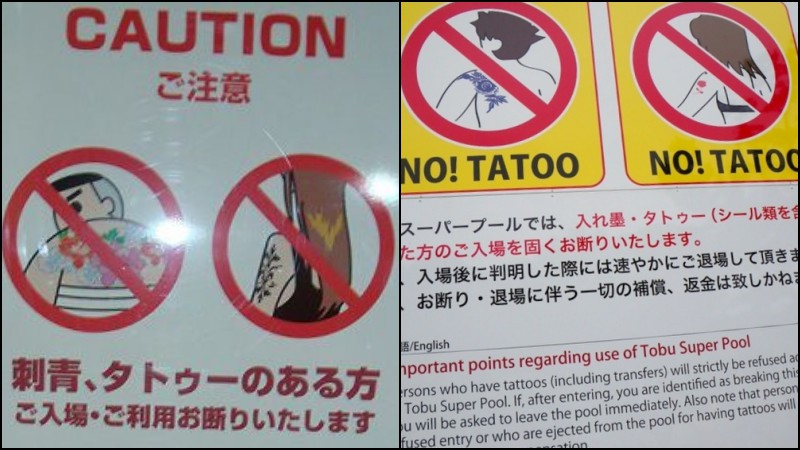
The dangers of getting a tattoo in Japanese
Moving away from the idea of how Japan views tattoos, let's now talk a little about the famous Japanese and Chinese character tattoos that people usually get. Usually taking a beautiful and descriptive word and adjective.
Before you want to get a tattoo in Japanese, you need to think about the dangers. Permanently etching language into your skin that you can't read is a dangerous proposition. Most of these tattoos leave the Japanese scratching their heads.
Most Japanese kanji have multiple meanings (up to 20+). Some meanings are quite obscure. If you choose a kanji tattoo because of its obscure meaning – it could be an embarrassing mistake.
You can even choose the correct character, but its meaning may not be what people will think. For example, the ideogram of peace it can be [安], but many will think it's written cheap [安い].
Even celebrities make mistakes, the famous Britney Spears got a tattoo with an ideogram [変] in the idea of meaning something mysterious, but people can only see something as strange and unusual. The ideogram has a negative connotation, used even to write words like hentai [変態].
Some believe that joining the ideograms to form the intended word can avoid these problems, but this is not always the case… Some words can also be confusing if not applied in context.
For example, someone tattoos [西原] thinking it spells wild west. He's not wrong, but the Japanese will read a common surname Nishihara. It's like tattooing Henrique or Oliveira on the Arm. It's not just names, Japanese words can also have multiple meanings.
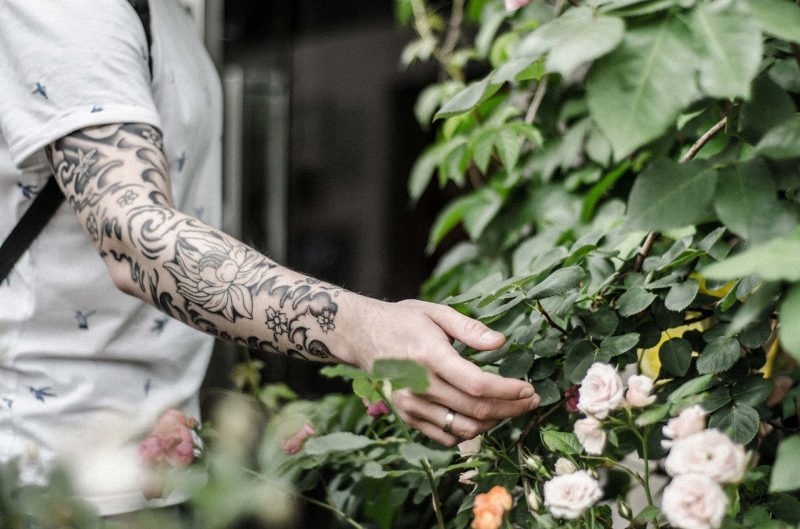
Cautions when getting a tattoo in Japanese
It's not just going to any tattoo artist, showing a photo and asking him to do the tattoo. Japanese ideograms have order in the writing of strokes, a simple mistake can completely change the meaning of the word, or make it look like just a scribble.
Some Japanese study decades to master the Shodo writing art. Do you really think that an amateur tattoo artist, even knowing the art of drawing, will be able to get a tattoo with Japanese ideograms without any risk?
Also be careful with the fonts chosen on the internet, some don't make sense, others can come out different if passed from the computer to a skin. Kanji tattoos sometimes have errors that make them completely unreadable, so be careful.
It is also worth remembering that many Japanese or Chinese characters are similar. Changing the order of a stroke can make you tattoo a different word on your skin. Also beware of Simplified Chinese fonts, Japanese and Chinese are different things.
Be careful not to tattoo the mirror image or upside down, pay attention to the correct way to position the ideogram on your skin. Make it clear to the tattoo artist the shape you want the tattoo to look like to avoid problems and embarrassment.
If you want a kanji tattoo, getting advice from a trusted native Japanese speaker is essential. Show him the design and make sure the characters look professional. Ask what the words mean in different contexts.
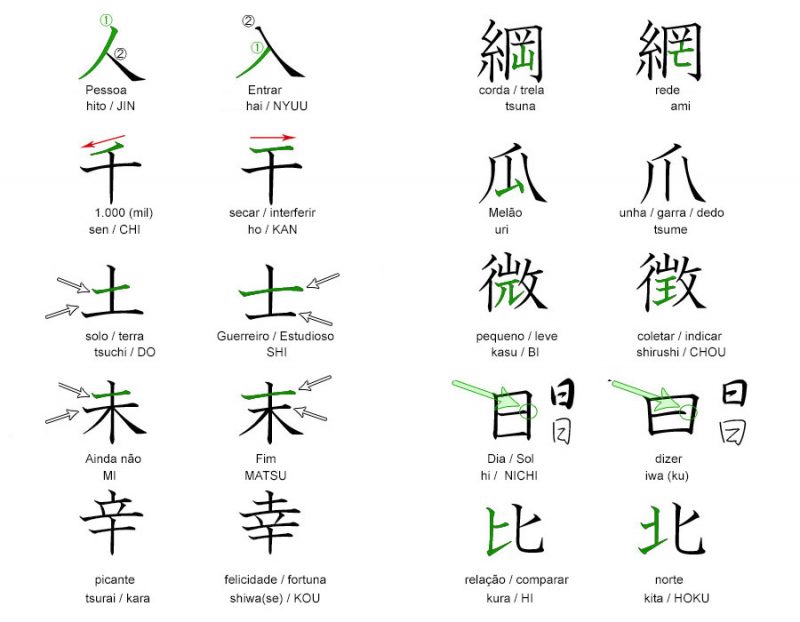
50 popular ideograms for your tattoo
Many want to get a tattoo in Japanese or Chinese, but have no idea which ideogram to use or what they mean. For that, we made a list of the main ideograms used in tattoos for you to get inspired.
- Soul (Tamashii)
- Ambition (Yabou)
- Friendship (Yuujou)
- love (ouch)
- Rainbow (Niji)
- beauty (bi)
- Bravery (Yuukan)
- Buddhism (Bukkyou)
- Courage (Yuuki)
- Belief (Shinnen)
- Desire (Yokubou)
- God (Kami)
- Dragon (Ryuu)
- Hope (Kibou)
- Spirit (Seishin)
- Star (Hoshi)
- Eternity (Eien)
- Happiness (Koufuku)
- Honor (Meiyo)
- Ideal (laughs)
- Enlightenment (Satori)
- Illusion (Gensou)
- Justice (Seigi)
- Loyalty (Chuujitsu)
- Caption (Densetsu)
- Freedom (Jiyuu)
- Moon (Tsuki)
- Meditation (Mokusou)
- Nature (Shizen)
- The Code of the Samurai (Bushidou)
- ocean (Umi)
- Pride (Hokori)
- Passion (Jounetsu)
- Peace (Heiwa)
- Perfect (Kanzen)
- Power (Chikara)
- Promise (Yakusoku)
- Respect (Sonkei)
- Wisdom (Chie)
- Samurai
- Secret (Himitsu)
- Shogun
- Sky (Sora)
- dream (yume)
- Success (Seikou)
- Sun (Taiyou)
- Universe (Uchuu)
- Truth (Shinjitsu)
- Victory (Shouri)
- Zen
